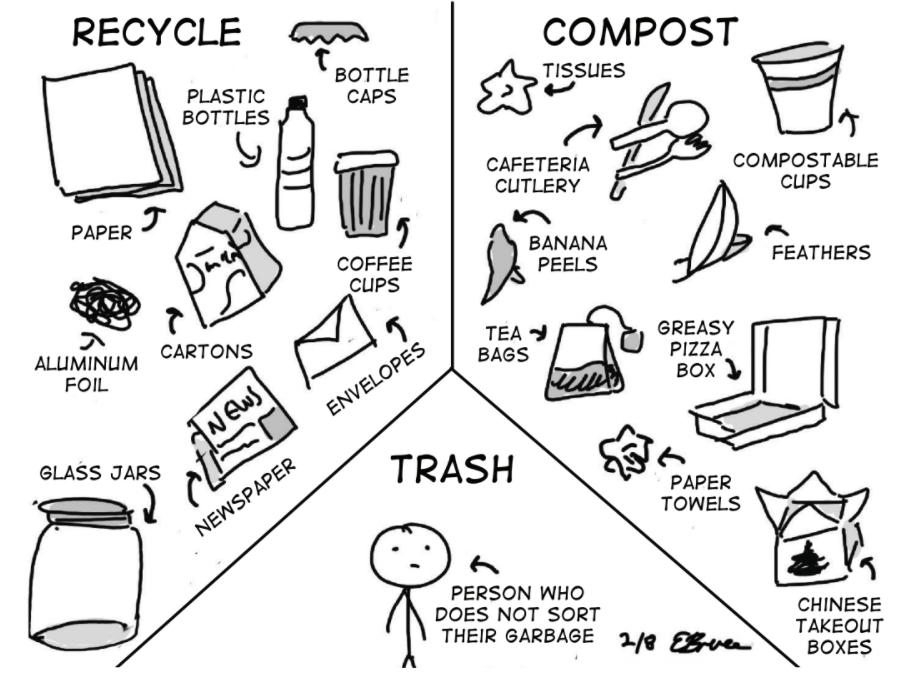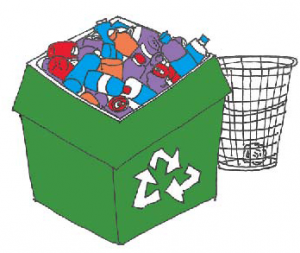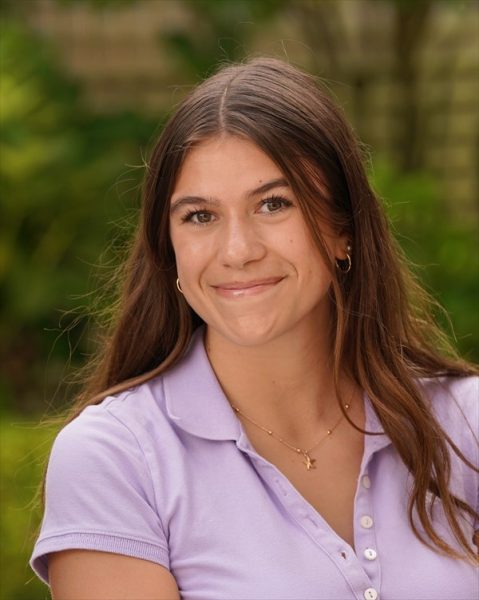Zero waste, zero change
The City of San Francisco has the goal of becoming a zero waste city by 2020, but with only two years left, it seems impossible unless major changes revolving around sorting waster are made, including within the Convent & Stuart Hall community.
February 9, 2018
San Francisco had a diversion rate of 52 percent as of 2001, with over half of the waste generated was either recycled or composted, according to the San Francisco Department of the Environment. Former Mayor Ed Lee announced in 2012 that San Francisco had achieved
a diversion rate of 80 percent, the highest rate for a United States city.
But being the best is not good enough. There has been little change in the diversion rate in the last six years, and with only two years to increase the diversion rate 20 percent, zero waste seems unlikely, unless all San Franciscans take the initiative to sort waste.The Convent & Stuart Hall cafeteria’s containers, plates and utensils are all 100 percent compostable, yet the school’s trash and recycling bins are filled with compostable food and containers every day.
The school paid $1,179.68 in fines during the months of November and December because waste was not sorted into the correct bins, according to Plant Operations Director Geoff De Santis.
Goal Three’s final Criteria calls us to have a “respect for creation and … be stewards of the earth’s resources.”
Composting and recycling helps decrease the amount of landfill emissions, which contribute to overproduction of greenhouse gases and expedite climate change, according to the United Nations Environment Programme.
San Francisco has already created several ordinances to support this objective, with actions as diverse as banning plastic shopping bags, prohibiting the use of Styrofoam food service ware, and making the delivery of Yellow Pages optional.
Yet, over half of what San Franciscans put in black trash bins can be recycled or composted. If waste were sorted correctly, the diversion rate would increase to 90 percent, according the San Francisco Department of the Environment, making zero waste even more important.
Each of us needs to take those extra seconds to sort waste — if not for the monetary savings, then for the environment and to help San Francisco get a little closer to reaching zero waste.











